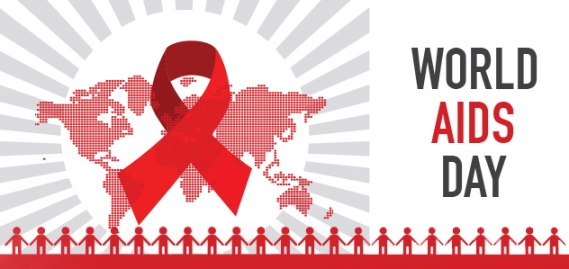Kufre Etuk
The 2020 quarterly HIV fact sheets released by the National Agency for the Control of AIDS in November indicates that in every 1000 Akwa Ibomites screened for HIV, 48 persons came out positive. Akwa Ibom State is a hotbed of HIV in the country; this is one fact some have dismissed with a wave of the hand; the reality of this disease remains unclogged in our domain.
Since HIV was first discovered in Akwa Ibom State in 1989, there has been a spasmodic progress in cases of HIV in the state. In 1999, it was discovered that 187,000 people with HIV were not on drugs, today the story has changed.
On October 22, 2020, the Deputy Director Technical, Strengthening Integrated Delivery of HIV/AIDS Services (SIDHAS) Dr Pius Nwanokoro, during the engagement meeting with media representatives on HIV Treatment Surge Agenda, declared that 65,185 persons in Akwa Ibom State are living with HIV. This data is a product of 10 years consistent testing since April 2009 till Thursday 22nd October.
From April 2009, SIDHAS has carried out HIV tests on 1,355,203 persons in Akwa Ibom and 65,185 persons tested positive for HIV. The 65,185 persons who tested positive are spread across 21 local government areas of the state, where the testing was carried out. If other International agencies add their results to what SIDHAS has, it may triple the figure.
Akwa-Ibom State has HIV prevalence of 5.5% as in 2018. In the 2014 Antenatal Care (ANC) Survey, Akwa-Ibom had the second highest prevalence rate of 10.8% in the country after Benue State.
However, the HIV prevalence in Akwa-Ibom State has somewhat declined from 12.5% in 1999 to 7.2% in 2003. There was a surge at 10.9% in 2010, stabilizing at 10.8% in 2014. The population-based National AIDS and Reproductive Health (NARHS plus) in 2012 also estimated HIV prevalence of 6.5% for Akwa Ibom State. The differences between the prevalence from different surveys (ANC 2014 and NARHS plus 2012) with less robust design, therefore, necessitated another survey to provide more precise estimates of HIV prevalence in the state.
In November 2020, the University of Uyo Teaching Hospital, UUTH had 3,877 positive persons on Anti-Retroviral Treatment (ART).
According to 2019 Technical Brief sponsored by Fhi 360, Akwa Ibom State has the highest prevalence in the country at 5.5% with an estimated burden of 178,000 people living with the virus. Of these, an estimated number 120,000 people have an unmet need for life-saving anti-retroviral therapy and this has necessitated a mix of interventions to reduce the gap and ensure that most patients placed on therapy, remain on therapy and achieve viral load suppression in line with the UNAIDS laid out 90-90-90 targets.
Some factors contributing to the indiscriminate perpetuation of the epidemic in Akwa Ibom State have been identified. These include low HIV risk perception among the populace, difficult geographic terrain in parts of the state resulting in poor access to available ART services.
Other drivers that explain observed patterns include high risk sexual behaviour, especially among young people and entrenched sociocultural practices. Religious and superstitious beliefs about HIV/AIDS adversely affect the health risking behaviour of the populace. These beliefs also fuel stigma and discrimination within the various communities, constituting a significant barrier in access to care.
Akwa Ibom Government deserves commendation for solely sponsoring Akwa Ibom State AIDS Indicator Survey (AKAIS) and providing conducive environment for collaboration with international organizations to stem the tide of HIV in the state. However, Akwa Ibom State Agency for the Control of AIDS has been plagued by lack of funds since its creation.
Despite lack of funding AKSACA, SIDHAS have succeeded in achieving 90% viral suppression in the 21 local government areas, which means that by consistently providing drugs to HIV patients, 90% of those with the virus in the state cannot transmit it to others.
SIDHAS has also succeeded in ensuring epidemic control of the virus in 7 LGAs of the state including Uyo.
December 1 has been dedicated to World AIDS Day. It is an opportunity for people worldwide to unite in the fight against HIV, to show support for people living with HIV, and to commemorate those, who have died from an AIDS-related illness.
World AIDS Day is important because it reminds the public and government that HIV has not gone away – there is still a vital need to raise money, increase awareness, fight prejudice, and improve education.
The current HIV/AIDS situation in Akwa Ibom State calls for a more robust multi-sectoral response towards curbing the epidemic. Apart from providing funds for AKSACA, the state government should increase access to testing services by providing enough rapid-test kits to enable all primary and secondary health facilities in the state to be able to provide free HIV testing services to the citizens.
The state government should increase access to treatment by creating new comprehensive treatment centres in one senatorial district to complement other comprehensive treatment centres supported by international partners.
Akwa Ibom State House of Assembly should do well to make law that will enable the state prosecute persons found to wilfully infect or transmit HIV virus to another person.
With the theme of this year’s World AIDS Day: “Global Solidarity, Shared Responsibility,” there is need for Akwa Ibom citizens to shun stigmatization because breakthroughs in sciences have made HIV no longer a death sentence. We must show our brothers and sisters love, no matter their status.
To the infected persons, we feel your pain, regret, and stress. Together we shall continue to survive.

